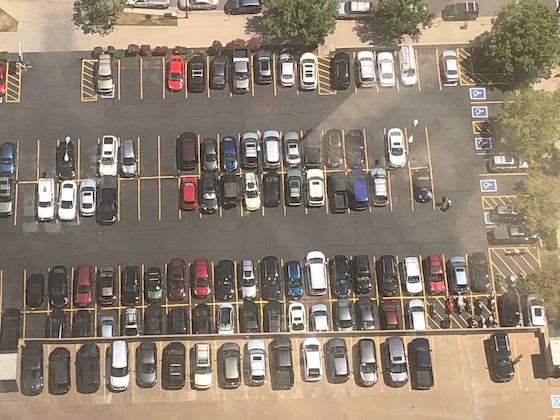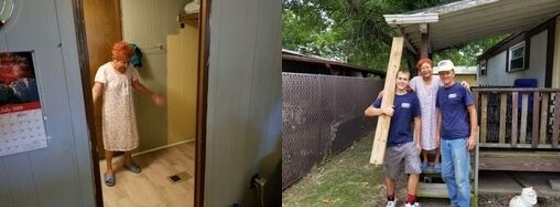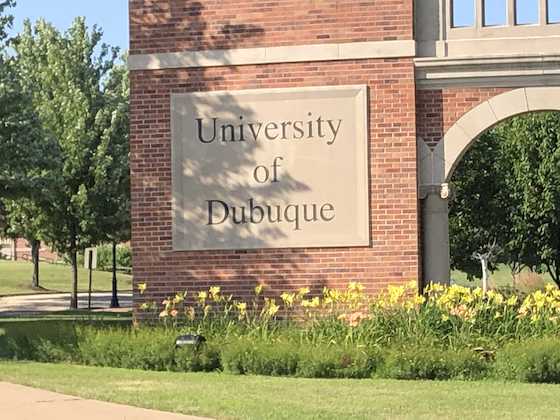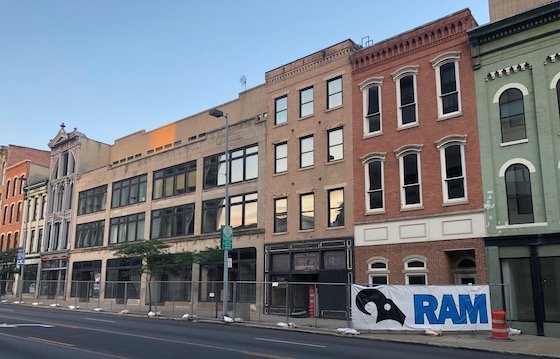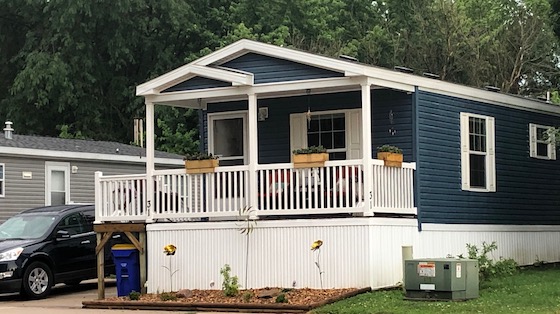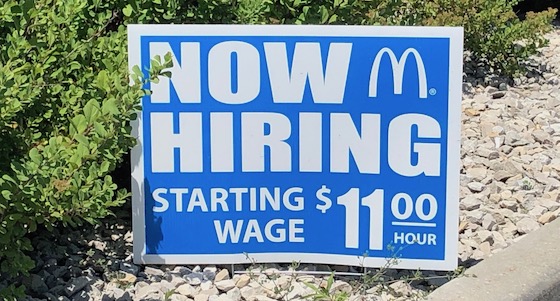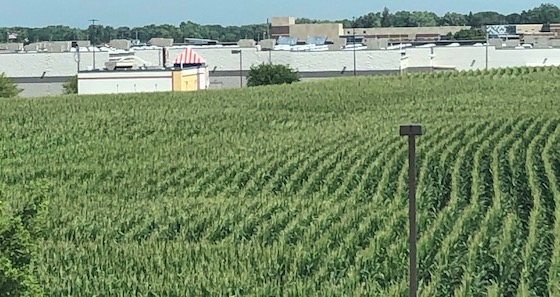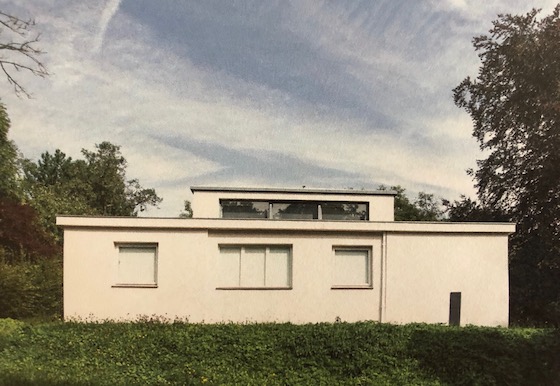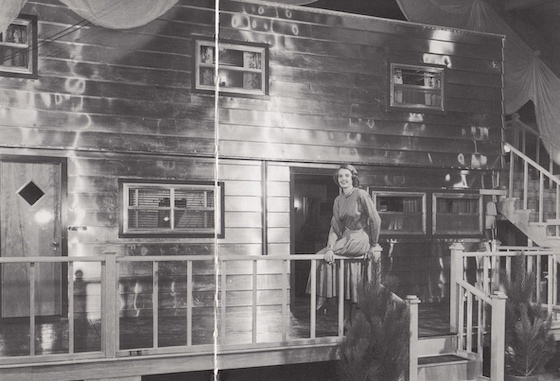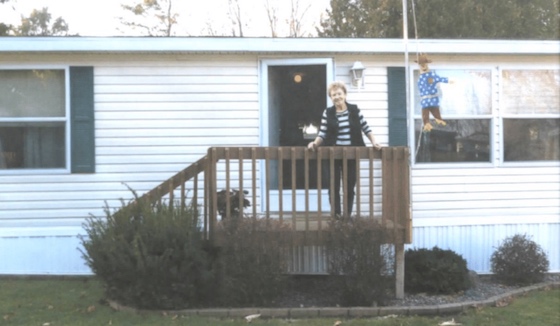This is a photo of a room in the new Residence Inn in Ohio. We are betting that every single unit in this chain that has been freshly renovated looks exactly like this. Standardization has been a tenet of American business since Henry Ford brought out the Model T. So what items should all smart park owners standardize?
Entry
After over 20 years of experimentation, we think we’ve come up with the ideal entry design (but do have many other people). The secret? White vinyl – and lots of it. Run 3-rail white vinyl fence down the frontage, and then install feather flags every 50’ or so. Install a nice entry sign that is also support by white vinyl posts and caps. For some reason, white vinyl is the perfect look for every mobile home park as it suggests a more “country” feel and is incredibly low maintenance and inexpensive. Figure on about $10 per linear foot on the fence and about $1,500 on the entry sign.
Color palate
Every park owner should have their own individual color palate that ties all their signage, flags – everything – together. Ours is blue, orange and white, but you can choose anything you like. To be safe, find a really nice property you admire and “borrow” their colors.
Marketing signage
We print all of our marketing signage (banners, for sale signs, etc.) from the same source for the sake of consistency. If you let your on-site manager order it, they will make some type of mistake that will always make you unhappy. Design really good signs, print them from one source, and ship them to each property. Don’t let any other chefs in the kitchen.
Street signage
We suggest white vinyl posts and caps as the supports for all signage on the property. It looks great, matches your entry, is inexpensive, and lasts forever. You can buy attachments for street signs that look very professional, and new signs from on-line sources (stop, children at play, etc.).
Road condition and striping
All roads should be free of potholes. All speed bumps should be freshly painted, as should any other requirements (handicap parking, fire lane, etc.). Making the streets back to a dark color using emulsion or sealer is also a great idea.
Office exterior
You should paint all park buildings the same color palate across all properties. For us, that basically means white (typically vinyl siding) but we’ve seen great green, tan and other colors used in other parks. In addition, the office should have at least one feather flag, signage that says “Office”, a locking bulletin board that includes notices (including anything required by law), the hours of operation and a sign that says “open”.
Office interior
We have worked really hard in recent years to even standardize the interior of our offices. We try to have a bulletin board that says “welcome to the community” and various marketing materials, as well as a table to sign contracts with ample pens and forms. Where you make money with an office is in retaining current residents and signing up new ones. It should be geared up for that purpose.
Amenities
Like all park owners, we have been trying to establish a common park amenity package. That being said, no two mobile home parks are alike, so this is a tough item to make truly uniform. However, the key amenities that we’re trying to have across all parks are 1) picnic tables and grills for outdoor enjoyment and 2) a professional-grade playground for small children who need frequent activities and can’t drive to greater community offerings.
Resident communications
If you don’t have a newsletter, then start making one. It’s inexpensive, easy to farm out to a virtual assistant, and sets a great tone to the customers. Also take advantage of posting positive information on a locking bulletin board (all-weather) that can be either by the mailboxes or the office (based on where the rent is given).
Resident programs
We think every park should have an annual “Spring Clean Up” event. We think every park should have a “Yard-of-the-Month” award given to one resident. We have also been having great success in linking non-profit groups together to focus on an intense weekend of service to those in need.
Conclusion
Standardization is not only for the hotel industry. It’s good for park owners, too. Come up with your best ideas and then roll those out in your full original vision. Everyone will benefit.

